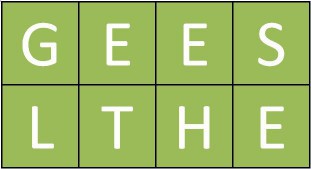Transcultural European Outdoor Studies: a case study of transcultural learning and teaching
By Dr. Chris Loynes (University of Cumbria)
Travelling, curiosity and the quest for the unknown have been a key metaphor for personal growth and human development for at least two thousand years. These ideas re-appeared in the late 13th century when students began to go on so-called Peregrinatio Academica. – peregrinations – to foreign universities. These reached their peak in the 17th century. Today most universities worldwide value transcultural travelling and cooperation in their internationalization strategies.
Financially supported by the European Union’s education programme Erasmus Mundus, a two-year joint international master’s degree entitled Transcultural European Outdoor Studies (TEOS) began in the fall of 2011 and is now in its fifth year. The programme is run collaboratively by Marburg University, Germany; the University of Cumbria, UK and the Norwegian School of Sport Sciences in Oslo. It is explicitly inspired by the ancient idea of peregrination. TEOS involves travelling cohorts of students who spend a semester at each of the universities to explore three of the main European outdoor traditions in their native contexts: Erlebnispädagogik, Outdoor Education (Loynes, 2007) and Friluftsliv (Gurholt, 2008), respectively. The cohorts of approximately twenty international students each come from nearly as many countries and five continents. The course is full time and two years long.
Cultural interaction on the programme takes many forms including living and studying in an international group, studying in three countries, studying with the national cohort of postgraduate students in each country, being taught in English yet learning two other languages, exploring the local cultures and landscapes, experiencing and examining outdoor activities and outdoor educations of each nation and engaging with visiting scholars from other countries as well as the host nations. The central question of the programme is how the different landscapes and cultural contexts of the three nations, whilst influenced by many of the same historical roots, lead to varying forms of human nature relations and outdoor education practices. Over the first five years of the programme this question has been asked by both staff and students.
Different cultures of human nature relations
The understanding that is emerging is of three romantic traditions yet with different ideas of nature and landscape. In the UK the value has been placed on ‘other’ places of wilderness and strangeness both at home and abroad (Loynes, 2010). Rooted in the British imperial past and its history of exploration the challenging expedition remains a central plank of outdoor education practice. Norway, on the other hand, has only emerged relatively recently from a rural past and as an independent country (Gurholt, 2016). The mountains are celebrated both as home and as a national icon celebrated as a core element of the nation’s identity. Being at home whilst journeying in this cultural mountain landscape acts as an endorsement of an ideal of what it is to be Norwegian, something that most Norwegians engage in as part of their everyday lives. For Germans curiosity about ‘other’ cultural landscapes beyond their own borders has inspired journeys abroad and this exploration remains practiced by youth movements such as the Wandervoegel.
The journey as pedagogy
The TEOS curriculum explicitly sets out to explore this experience of the journey as a phenomenon and as an experience in which the students are engaged on a micro scale of excursions and a macro scale of the two-year study programme. The concept of journeying or of being ‘on the way’ underpins most philosophies of outdoor education. According to anthropologist James Clifford (1997) the “travelling cultures” paradigm opens up a broader dialogue concerning travel as a reflection of humanity’s transcultural condition.
Again, the three countries share a common idea of the journey that has unfolded in different ways in each culture. The three key stages of ‘departure’, ‘being on the way’ and ‘the return’ are commonly held. In Norway the departure to the mountains became the most valued element as Norway gained independence from Sweden and the person found individuality from the collective. In contrast, German practice celebrates the ‘being on the way’ as of value in its own right, learning about the ‘other’ for its own sake. In Britain it is rather the return that is emphasised. Whether what is brought back is new knowledge or some personal attribute it is what this has to offer at home that seems most important.
A paper, that has taken the full five years to craft, is close to submission. The intentions are two-fold. Firstly, we hope the paper will deepen and discuss how ideas of travelling and transcultural sensitivity are argued and advanced in the aims, curriculum development, study strategies and comparative research policy within TEOS and other programmes. Secondly, we wish to discuss the contribution to new understandings of the complexity of human-nature relationships in the increasingly globalising field of outdoor pedagogies that TEOS may represent.
References
Clifford, J. (1997) Routes: travel and translation in the twentieth century. Harvard University Press.
Gurholt, K. P. (2008). Norwegian Friluftsliv and Ideals of becoming an ‘Educated Man’. Journal of Adventure Education and Outdoor Learning, 8(1): 55-70.
Gurholt, K.P. (2016). Friluftsliv: nature friendly adventures for all. In Humberstone, B., H. Prince, & K. Henderson (Eds.), Routledge International Handbook in Outdoor Studies. London and New York: Routledge.
Loynes, C. (2007). Social Reform, Militarism and Other Historical Influences on the Practice of Outdoor Education in Youth Work. In P. Becker, K. H. Braun & J. Schirp (Eds.), Erlebnisse und die Padagokik. Marburg, Germany: Abenteuer.
Loynes, C. (2010). The British Youth Expedition. In S. Beames (Ed.), Understanding Educational expeditions. (pp. 1-16). Rotterdam: Sense Publishers.
